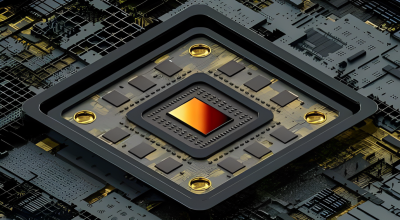Highlights:
- IBM Corp. established a new partnership with the Japanese semiconductor startup Rapidus Corp. to assist in the commercialization of its innovative two-nanometer processors.
- The agreement is part of a Japanese government initiative to rebuild the country’s position in the chipmaking sector.
IBM Corp. established a new partnership with the Japanese semiconductor startup Rapidus Corp. to assist in commercializing its innovative two-nanometer chips.
The agreement is part of a Japanese government initiative to rebuild the country’s position in the chipmaking sector. Rapidus will be permitted to commercialize IBM’s two-nanometer manufacturing technique and scale up chip mass production.
Rapidus is not projected to begin mass production until the second half of this decade; thus, it will take some time for the collaboration to become operational. According to a previous Nikkei report, the company’s first plant might open between 2025 and 2027.
According to a recent Center for Strategic and International Studies research, Japan’s influence in the chip manufacturing sector has diminished since its 1980s zenith.
Atsuyoshi Koike, president and chief executive of Rapidus, stated that the partnership with IBM was “long wanted” by his business and “essential for Japan to once again play a vital role in the semiconductor supply chain.”
Rapidus intends to commercialize a two-nanometer process node that IBM introduced last year. IBM claims that its two-nanometer chips may provide up to 45% greater performance while spending 75% less energy than the seven-nanometer chips produced by competitors such as Taiwan Semiconductor Co. and Samsung Electronics Co. Ltd.
Just last month, the establishment of Rapidus was announced. The Japanese government and various Japanese corporations, including Toyota Motor Corporation, Kioxia Holdings Corporation, Sony Electronics Limited, NEC Corporation, SoftBank Group Corporation, and MUFG Bank Ltd, support it. The Japanese government announced at the time that it would invest 70 billion yen (about USD 500 million) in the fledgling chipmaker, with the funds going toward research and development, manufacture, design, and the sale of advanced CPUs and graphics processing units.
According to Reuters, Rapidus expects to receive more finance from unidentified sources to construct its national chip production unit. This means that many of Rapidus’ backers will also contribute funds to assist the firm launch.
In May 2022, U.S. President Joe Biden and Japanese Prime Minister Fumio Kishida established a bilateral agreement mandating the protection and promotion of “critical technologies” to enable supply chain resilience.
China’s robust approach against Taiwan, where most of the world’s sophisticated chips are now made, is of concern to both nations. Both Intel Corp. and TSMC have announced intentions to construct contemporary chip fabs in the United States to increase the country’s domestic chipmaking capabilities.














